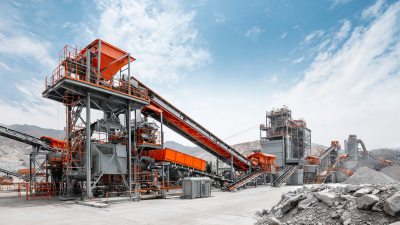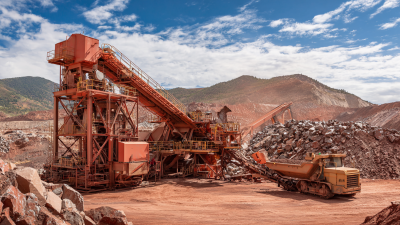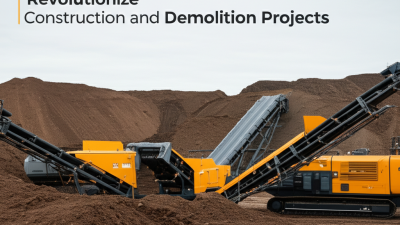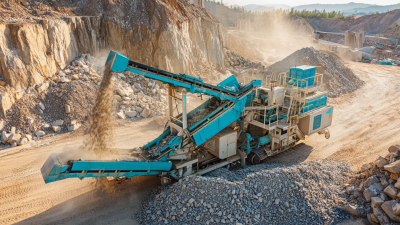In recent years, the construction and mining industries have witnessed a transformative shift in material processing technology, particularly with the advent of innovative solutions aimed at enhancing efficiency and productivity. Among these advancements, the "Gypsum Crusher" has emerged as a pivotal player in revolutionizing how gypsum and other similar materials are processed. This article delves into the 2025 Top Gypsum Crusher Innovations that are set to redefine industry standards and operational practices.
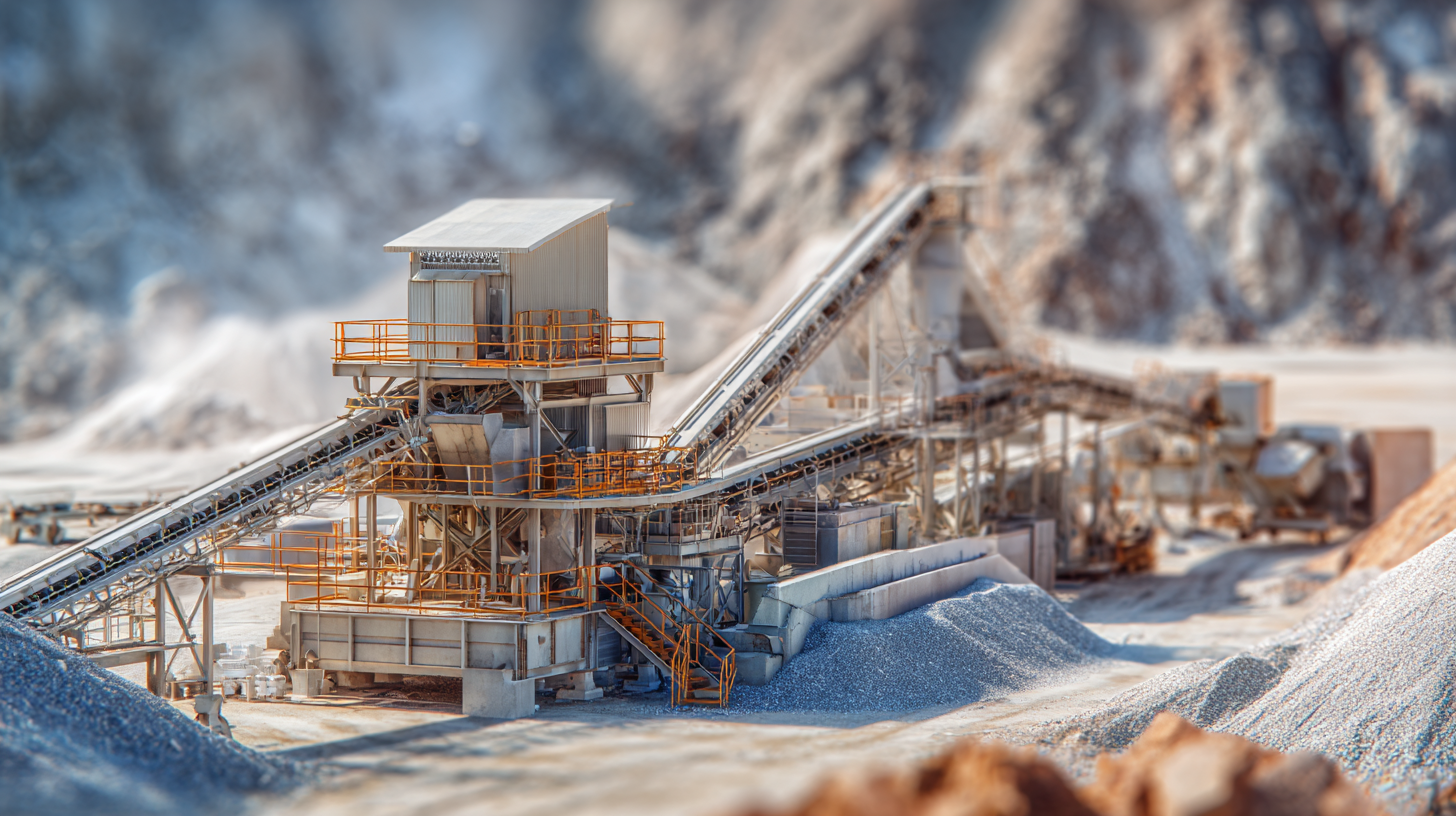
As the demand for sustainable and efficient construction materials continues to rise, the innovations surrounding gypsum crushers are not merely incremental; they represent a paradigm shift. By integrating cutting-edge technologies such as automation, artificial intelligence, and enhanced crushing mechanisms, these new models are designed to maximize output while minimizing energy consumption and environmental impact.
In this exploration of the "Top 10" Gypsum Crusher innovations, we will highlight the key features, benefits, and implications of these advancements. From improved material recovery rates to cost-effective processing methods, the future of gypsum processing is not only brighter but also more sustainable, reflecting a commitment to both economic and ecological responsibility.
In 2025, the gypsum crusher industry is poised for significant advancements, driven by cutting-edge technologies that enhance material processing and operational efficiency. Innovations in crusher designs are focusing on optimizing power consumption, improving throughput rates, and enhancing the durability of equipment, which are crucial for meeting the increasing demand in the construction and material recycling sectors. The incorporation of smart technologies, such as real-time monitoring systems, is expected to ensure better maintenance schedules and reduce downtime, leading to overall improved productivity.
Moreover, the emphasis on sustainable practices in the gypsum processing industry is becoming more pronounced. New designs are being developed to minimize waste generation and energy consumption, aligning with global initiatives for environmental sustainability. These advancements not only support operational efficiency but also contribute to the reduction of the carbon footprint associated with construction activities. As these innovations are implemented, the gypsum crusher market will likely experience substantial growth, positioning manufacturers and suppliers to fulfill the evolving needs of the construction industry effectively.
As the gypsum industry evolves, sustainable practices are becoming increasingly essential to minimize environmental impact. Modern innovations in gypsum crushing not only enhance efficiency but also prioritize ecological responsibility. By integrating advanced technologies, manufacturers can lower energy consumption during the crushing process, leading to decreased carbon emissions. Utilizing electric-powered crushers and optimizing operational workflows reduces reliance on fossil fuels, making the production cycle more sustainable.

Moreover, recycling and reusing gypsum materials have gained traction, further promoting environmental stewardship. Innovations such as closed-loop systems allow for the recovery of scrap gypsum from construction and demolition sites, which can be processed and reintroduced into the manufacturing cycle. This not only mitigates waste but also conserves natural resources, reinforcing a circular economy approach. The ongoing shift towards sustainable gypsum crushing practices underscores a commitment to reducing the industry's ecological footprint while meeting the growing demand for efficient material processing solutions.
In the evolving landscape of material processing, gypsum crushers have witnessed significant innovations aimed at maximizing output and efficiency. According to a recent report by Grand View Research, the global gypsum market is expected to reach USD 4.1 billion by 2025, driven largely by the increased demand in the construction sector. These advancements in gypsum crusher technology play a vital role in this growth by enhancing material efficiency and reducing waste during processing.
Recent innovations have focused on optimizing the design and functionality of gypsum crushers. Enhanced screening systems and adjustable settings allow operators to achieve finer particle sizes, which is essential for applications in drywall production and cement manufacturing. A study by the Association of Equipment Manufacturers highlights that modern crushers can increase throughput by 30%, substantially improving material yield and decreasing operational costs. As the industry continues to prioritize sustainability and resource efficiency, the role of advanced gypsum crushers becomes increasingly critical in meeting these demands while maintaining high production standards.
The integration of smart technology into gypsum processing is paving the way for unparalleled efficiency in the material processing industry. According to a recent report by MarketsandMarkets, the implementation of IoT technologies in manufacturing is projected to result in a 20-30% increase in operational efficiency by 2025. By harnessing real-time data and analytics, gypsum processors can optimize their operations, significantly reducing waste and improving resource management. This shift towards smart technology will not only revolutionize the way gypsum is processed but also contribute to more sustainable practices in the construction sector.
Additionally, smart IoT solutions enable predictive maintenance, ensuring that machinery operates at peak efficiency and downtime is minimized. Research published by Deloitte indicates that predictive maintenance can reduce maintenance costs by up to 30% and improve overall equipment effectiveness by around 15%. By employing sensors and connected devices, gypsum manufacturers can monitor machinery health and performance, allowing for timely interventions before minor issues escalate into significant problems. This proactive approach, supported by advancements in smart technology, is set to transform the gypsum processing landscape, making it not only more efficient but also more resilient against operational disruptions.
As the construction industry continues to evolve, the future of gypsum waste management and recycling is poised for significant innovation. With an increasing emphasis on sustainability, new technologies are being developed to enhance the extraction of usable materials from gypsum waste. This not only helps in reducing landfill contributions but also promotes a circular economy where resources are reused efficiently. Innovative crushing technologies are leading the way in breaking down gypsum waste into finer components that can be repurposed in various construction applications.
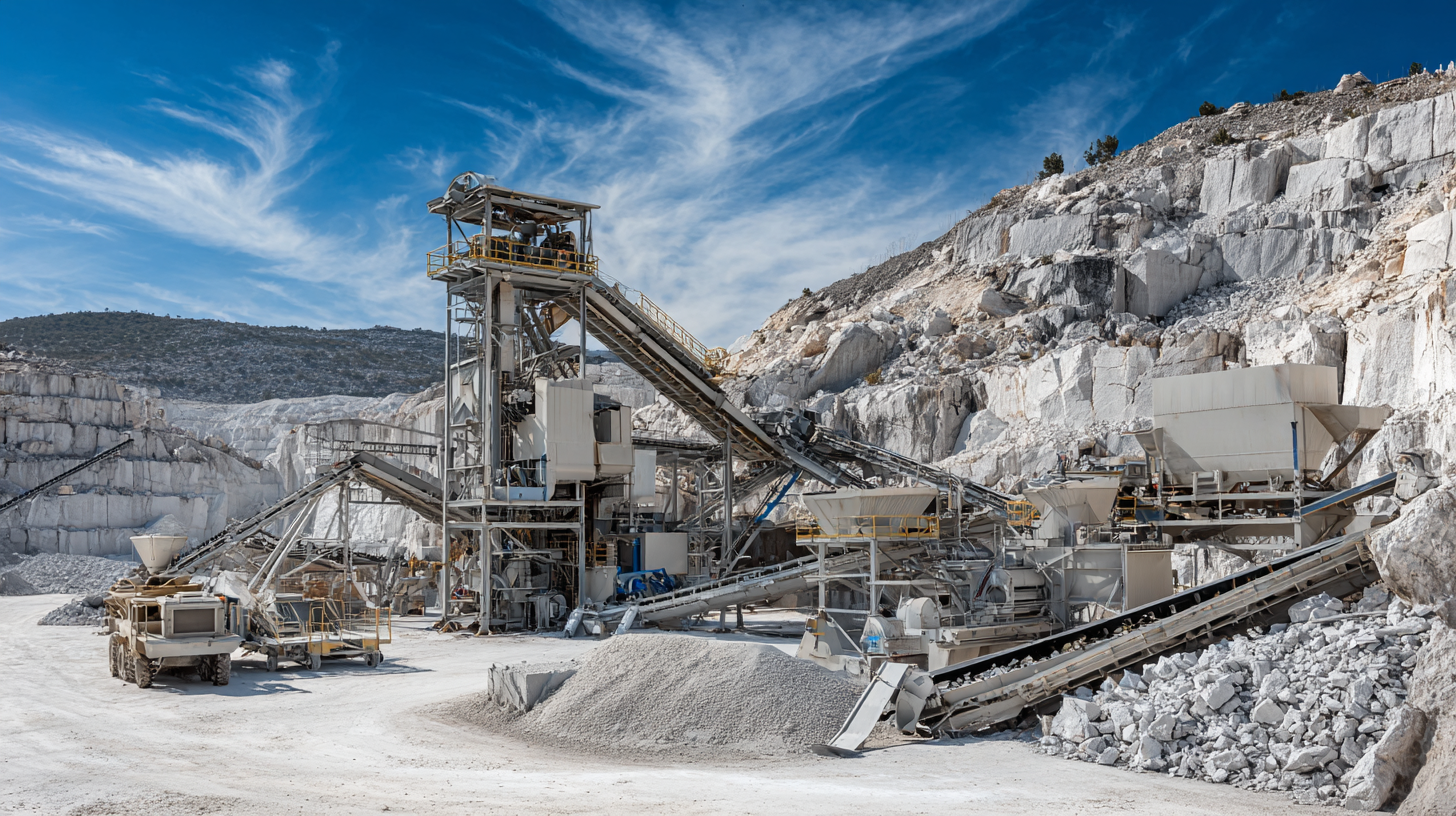
Tip: To effectively manage gypsum waste, construction companies should consider implementing a comprehensive recycling program. This can include training staff on waste segregation and the benefits of recycling gypsum materials to ensure compliance and participation at all levels.
Additionally, advancements in machinery are allowing for the processing of gypsum waste on-site, minimizing transportation costs and associated emissions. Mobile gypsum crushers equipped with advanced sensors and automation features can enhance efficiency by optimizing the size reduction process. This not only ensures better use of materials but also aligns with environmental regulations aimed at reducing waste in the construction sector.
Tip: Explore partnerships with local recycling facilities that specialize in gypsum waste, as they can provide valuable insights and technologies that can streamline your waste management processes.
